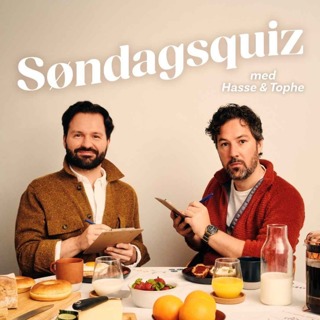
Episode 36 Preview
Subscribe on Apple Podcasts Subscribe on Google Play Subscribe on Stitcher Subscribe on YouTube Oh joy! 12 more episodes in the bag. That means next week is a GRAB BAG!! What random research from the behavior analytic archives will we unearth? But, before the festivities begin, we share some errata from the ABA Inside Track community, meet Rob's new character, the BEERhaviorist, and learn about some exciting plans for supervision episodes in September. That's right, SUPERVISION CEs ARE COMING!!! Articles for next week: Hirsh, J.L., Stockwell, F., & Walker, D. (2014). The effects of contingent caregiver imitation of infant vocalization: a Comparison of multiple caregivers. The Analysis of Verbal Behavior, 30, 20-28. doi: 10.1007/s40616-014-0008-9 Dotson, W.H., Rasmussen, E.E., Shafer, A., Colwell, M., Densley, R.L., Brewer, A.T., Alonzo, M.C., & Martinez, L.A. (2017). Evaluating the ability of the PBS children's show Daniel Tiger's Neighborhood to teach skills to two young children with autism spectrum disorder. Behavior Analysis in Practice, 10, 67-71. doi: 10.1007/s40617-016-0134-z Miramontez, S.K.H. & Schwarts, I.S. (2016). The effects of physical activity on the on-task behavior of young children with autism spectrum disorders. International Electronic Journal of Elementary Education, 9, 405-418.
9 Aug 201715min

Episode 35 - Response Interruption and Redirection w/ Dr. Bill Ahearn
Subscribe on Apple Podcasts Subscribe on Google Play Subscribe on Stitcher This week we're joined by special guest, Dr. Bill Ahearn, to discuss response interruption and redirection (RIRD). We discuss the fascinating history of how this popular treatment for vocal stereotypy came to be, the ins and outs of implementing the treatment, when to use it, and, more importantly, when NOT to use it. Plus, some helpful troubleshooting tips for practitioners and why you shouldn't pronounce it "rrrrird". Articles discussed this episode: Ahearn, W.H., Clark, K.M., MacDonald, R.P.F., & Chung, B.I. (2007). Assessing and treating vocal stereotypy in children with autism. Journal of Applied Behavior Analysis, 40, 263-275. doi: 10.1901/jaba.2007.30-06 Colon, C.L., Ahearn, W.H., Clark, K.M., & Masalsky, J. (2012). The effects of verbal operant training and response interruption and redirection on appropriate and inappropriate vocalizations. Journal of Applied Behavior Analysis, 45, 107-120. doi: 10.1901/jaba.2012.45-107 Colon, C.L. & Ahearn, W.H. (in prep). An analysis of treatment integrity of response interruption and redirection. If you're interested in ordering CEs for listening to this episode, click here to go to the store page. You'll need to enter your name, BCBA #, and the two episode secret code words to complete the purchase. Email us at abainsidetrack@gmail.com for further assistance.
2 Aug 20171h 21min

Episode 35 Preview
Subscribe on Apple Podcasts Subscribe on Google Play Subscribe on Stitcher Subscribe on YouTube On our next episode we'll be joined by Dr. Bill Ahearn to discuss the development of response interruption and redirection, one of the primary treatments for decreasing vocal stereotypy. But first, we read some listener emails about working with parents and fall into all manner of discussion, as is our wont. Articles for next week: Ahearn, W.H., Clark, K.M., MacDonald, R.P.F., & Chung, B.I. (2007). Assessing and treating vocal stereotypy in children with autism. Journal of Applied Behavior Analysis, 40, 263-275. doi: 10.1901/jaba.2007.30-06 Colon, C.L., Ahearn, W.H., Clark, K.M., & Masalsky, J. (2012). The effects of verbal operant training and response interruption and redirection on appropriate and inappropriate vocalizations. Journal of Applied Behavior Analysis, 45, 107-120. doi: 10.1901/jaba.2012.45-107 Colon, C.L. & Ahearn, W.H. (in prep). An analysis of treatment integrity of response interruption and redirection.
26 Jul 201712min

Episode 34 - Preschool Life Skills
Subscribe on Apple Podcasts Subscribe on Google Play Subscribe on Stitcher Love learning about classroom management strategies but wonder what's available for the junior set? Wonder no more as we review the Preschool Life Skills. Gaze in wonder at the power of name calling...or is that calling a name? Faint in shock at a variety of evocative situations. And flee in terror from attention-grabbing FCR! Remember, the children are our future; teach them appropriate means of accessing reinforcement and let them lead the way. Articles discussed this episode: Hanley, G.P., Heal, N.A., Tiger, J.H., & Ingvarsson, E.T. (2007). Evaluation of a classwide teaching program for developing preschool life skills. Journal of Applied Behavior Analysis, 40, 277-300. doi: 10.1901/jaba.2007-57-06 Beaulieu, L., Hanley, G.P., & Roberson, A.A. (2012). Effects of responding to a name and group call on preschoolers' compliance. Journal of Applied Behavior Analysis, 45, 685-707. doi: 10.1901/jaa.2012.45-685 Luczynski, K.C. & Hanley, G.P. (2013). Prevention of problem behavior by teaching functional communication and self-control skills to preschoolers. Journal of Applied Behavior Analysis, 46, 355-368. doi: 10.1002/jaba.44 If you're interested in ordering CEs for listening to this episode, click here to go to the store page. You'll need to enter your name, BCBA #, and the two episode secret code words to complete the purchase. Email us at abainsidetrack@gmail.com for further assistance.
19 Jul 20171h 16min

Episode 34 Preview
Subscribe on Apple Podcasts Subscribe on Google Play Subscribe on Stitcher Subscribe on YouTube Following up from our last episode on classroom management, it's preschool life skills. Think about it like the junior version of techniques for maintaining a productive classroom. And, surprise! Young children won't just "run out" of inappropriate behavior or magically learn how to follow classroom rules. And while you're prepping for next week's full-length episode, enjoy some excellent listener posts from the ABA Inside Track Facebook page and a rant about Cars 3. Articles for next week: Hanley, G.P., Heal, N.A., Tiger, J.H., & Ingvarsson, E.T. (2007). Evaluation of a classwide teaching program for developing preschool life skills. Journal of Applied Behavior Analysis, 40, 277-300. doi: 10.1901/jaba.2007-57-06 Beaulieu, L., Hanley, G.P., & Roberson, A.A. (2012). Effects of responding to a name and group call on preschoolers' compliance. Journal of Applied Behavior Analysis, 45, 685-707. doi: 10.1901/jaa.2012.45-685 Luczynski, K.C. & Hanley, G.P. (2013). Prevention of problem behavior by teaching functional communication and self-control skills to preschoolers. Journal of Applied Behavior Analysis, 46, 355-368. doi: 10.1002/jaba.44
12 Jul 201714min

Episode 13 Preview Again????
Subscribe on Apple Podcasts Subscribe on Google Play Subscribe on Stitcher Subscribe on YouTube Summer vacation is here and that's as true for the ABA Inside Track crew as it is for everyone else. So, rather than try to podcast on location from the beach next week, we'll be rebroadcasting a classic episode featuring an interview with Dr. Peter Gerhardt on the challenges young adults and adolescents with disabilities face when entering adulthood. But first, in errata, we share some listener emails on podcasting and mindfulness then take a moment to appreciate the awesomeness of a new microphone stand. Nothing says vacation like admiring podcast equipment. And, don't forget to check out the new ABA Inside Track CE store! Articles for next week: Gerhardt, P.F. & Lainer, I. (2011). Addressing the needs of adolescents and adults with autism: A crisis on the horizon. Journal of Contemporary Psychoherapy, 41, 37-45. doi: 10.1007/s10879-010-9160-2
28 Jun 201717min

Episode 33 - Classroom Management
Subscribe on Apple Podcasts Subscribe on Google Play Subscribe on Stitcher It's almost summertime for teachers in America so what better time to review some classroom management strategies to mull over for the next few months. This week we review the timeout ribbon and mindfulness strategies and mull over some big questions. What timeout ribbon will the most fashionable students be wearing this fall? Does mindful eating sound as gross in the classroom as it does when Rob tries it on the podcast? And does Jackie approve of the new Anne of Green Gables series on Netflix? Plus, Diana's favorite number and the worst IOA we've ever seen. Get ready to get that classroom into shape with your pals at ABA Inside Track! Articles discussed this episode: Foxx, R.M. & Shapiro, S.T. (1978). The timeout ribbon: A nonexclusionary timeout procedure. Journal of Applied Behavior Analysis, 11, 125-136. doi: 10.1901/jaba.1978.11-125 Kasson, E.M. & Wilson, A.N. (2016). Preliminary evidence on the efficacy of mindfulness combined with traditional classroom management strategies. Behavior Analysis in Practice, online only. doi: 10.1007/s40617-016-0160-x If you're interested in ordering CEs for listening to this episode, click here to go to the store page. You'll need to enter your name, BCBA #, and the two episode secret code words to complete the purchase. Email us at abainsidetrack@gmail.com for further assistance.
21 Jun 20171h 19min

Episode 33 Preview
Subscribe on Apple Podcasts Subscribe on Google Play Subscribe on Stitcher Subscribe on YouTube If you've ever been faced with a group of two, four, 10, 20, or more students, you've been thankful for all of the great strategies for classroom management that friendly behavior analysts have shared with you. Wait, what? You don't have any great strategies for dealing with all those students? Well, don't tell them that. Just fake it until next week's full-length episode on classroom management! In the meantime enjoy these citations, a musical interlude, and some general good-times with your hosts. Articles for next week: Foxx, R.M. & Shapiro, S.T. (1978). The timeout ribbon: A nonexclusionary timeout procedure. Journal of Applied Behavior Analysis, 11, 125-136. doi: 10.1901/jaba.1978.11-125 Kasson, E.M. & Wilson, A.N. (2016). Preliminary evidence on the efficacy of mindfulness combined with traditional classroom management strategies. Behavior Analysis in Practice, online only. doi: 10.1007/s40617-016-0160-x
14 Jun 201713min






















